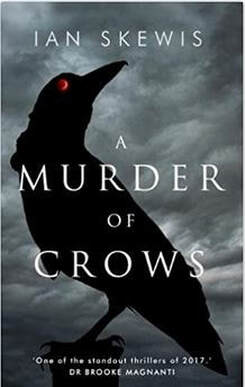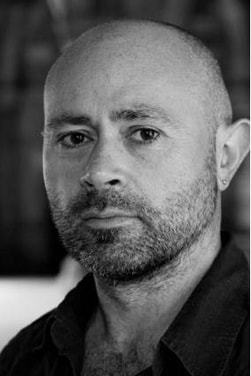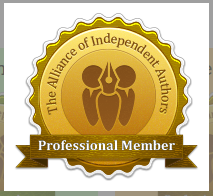|
Today I'm delighted to welcome novelist Ian Skewis to my blog. Ian's first novel, 'A Murder of Crows', was published in 2017. A proud moment for any writer! Let's get going with the questions. Tell us about 'A Murder of Crows'. 'A Murder Of Crows' is a crime thriller featuring DCI Jack Russell, who is on his final case before retiring. He is led to believe that the case will be relatively simple and it proves to be anything but. A serial killer has emerged and seems to be just getting started and it becomes a race against time to prevent the evolution of this new menace. Sounds great! What inspired the plot for the book? It was part inspired by an event that happened to me when I was nine years old. I was out for a walk in the country with my parents and we found a dead man hanging from a tree. My dad called the police and my mum kept me away from the site. But my imagination kind of filled in the gaps and from there a very strange little tale emerged. Needless to say, the countryside has long since taken on a rather more sinister aspect for me and this is very much evident in the book. This was in 1979. Now finally, the story, which I officially started writing in 1989, has taken flight as it were. Pun intended! What’s next for you? Will A Murder of Crow be the first in a series, and if so, can you give us any hints? Novelist Ian Skewis Novelist Ian Skewis About three years ago I came up with an idea for a sequel of sorts but I was determined that I wouldn't write it unless I could find something really challenging about it - I think I now have a really good follow-up story - one that will take on some very surprising twists and turns. As for hints, it begins six months after A Murder Of Crows ends and will involve a psychic, a female detective and the return of an old enemy... What is your all-time favourite novel? Atonement by Ian McEwan is still my favourite. I loved the fact that this character felt so bad about what she had done to what were essentially two innocent people, that she completely rewrote their history in a book - an act of kindness, albeit many years too late. I was surprised at how good the film version was too. Books that comment in some way on writing and its gift to heal always appeal to me - Life Of Pi being another example. Do you prefer to read e-books or paper books?I always prefer paper, and in particular, paperbacks. They yield and become old, dog-eared and yellowed with age and there is something very human and comforting about that. Hardbacks are good too but they don't bend easily and are less portable, I feel. Do you think the cover plays an important part of the buying process?Absolutely! I had a whale of a time designing my book cover. My publisher actually sent me a three page questionnaire asking things like what font I wanted to use, how I would describe the contents of the story and what images did I reckon would be suitable for the cover. I always knew it would be a lone crow. I actually had some sketches from 2009 that I did when I could only dream of such things as book covers and it was amazing to be able to literally draw on that and see it come to life! I'm thrilled with the end result, and all thanks to Mark Ecob for being very patient and such a good collaborator. The book cover is very stark and haunting and the crow's eye contains other elements such as a blood red moon, and a farmer's scythe - all very symbolic... What is the hardest thing about writing a book?For me it was always a lack of confidence. I spent years listening to those doubts in my head telling me that I wasn't all that good, and who did I think I was, deigning to write? I know now that this was just my inner critic, which is healthy and no bad thing. But a healthy balance is what's needed. It goes back to believing in yourself and reaching for the stars but keeping one's feet on the ground. What is the easiest thing about writing a book?The freedom to do anything you like. One of the reasons I gave up acting (I was a professional actor) was that I always felt like part of a greater whole and often I had bigger ideas than that. Now as a writer I can conjure up entire worlds. I have the last word on everybody's destiny. That is an incredible palette to be able to work from. However, when you play God, and all writers do to a greater or lesser degree, then that comes with a huge responsibility. So when I have to end someone's life in a story for example, I never take it lightly. When I had to kill someone in 'A Murder Of Crows' I cried as I wrote it because I wrote it not from the point of the gore or the violence but from the memories of that person as they faded away, the ground rushing up towards them, all their regrets, all the things they still could have done, had their life not been cut short. Another character in the book has a tragic and very emotional ending that was really difficult for me to write. I felt I had somehow locked them up and thrown away the key, condemned them to a terrible existence. If these characters were real they would probably slap my face for what I did to them - and deservedly so! What advice would you give to would-be novelists?Believe in yourself - but keep your feet on the ground. And beware of who you take advice from. All industries have their charlatans. It's worth stating here that if something feels wrong then it probably is - so above all, trust your instinct! Thank you, Ian, for your time! It's been a pleasure interviewing you.If you'd like to know more about Ian and his books, check out his website: www.ianskewis.com.
1 Comment
|
Categories
All
Subscribe to my blog!
Via Goodreads
|
Join my Special Readers' group and receive a free copy of 'Blackwater Lake'!
|
Privacy policy Website terms and conditions of use
Copyright Maggie James 2018 - current date. All rights reserved.
Copyright Maggie James 2018 - current date. All rights reserved.
 RSS Feed
RSS Feed
